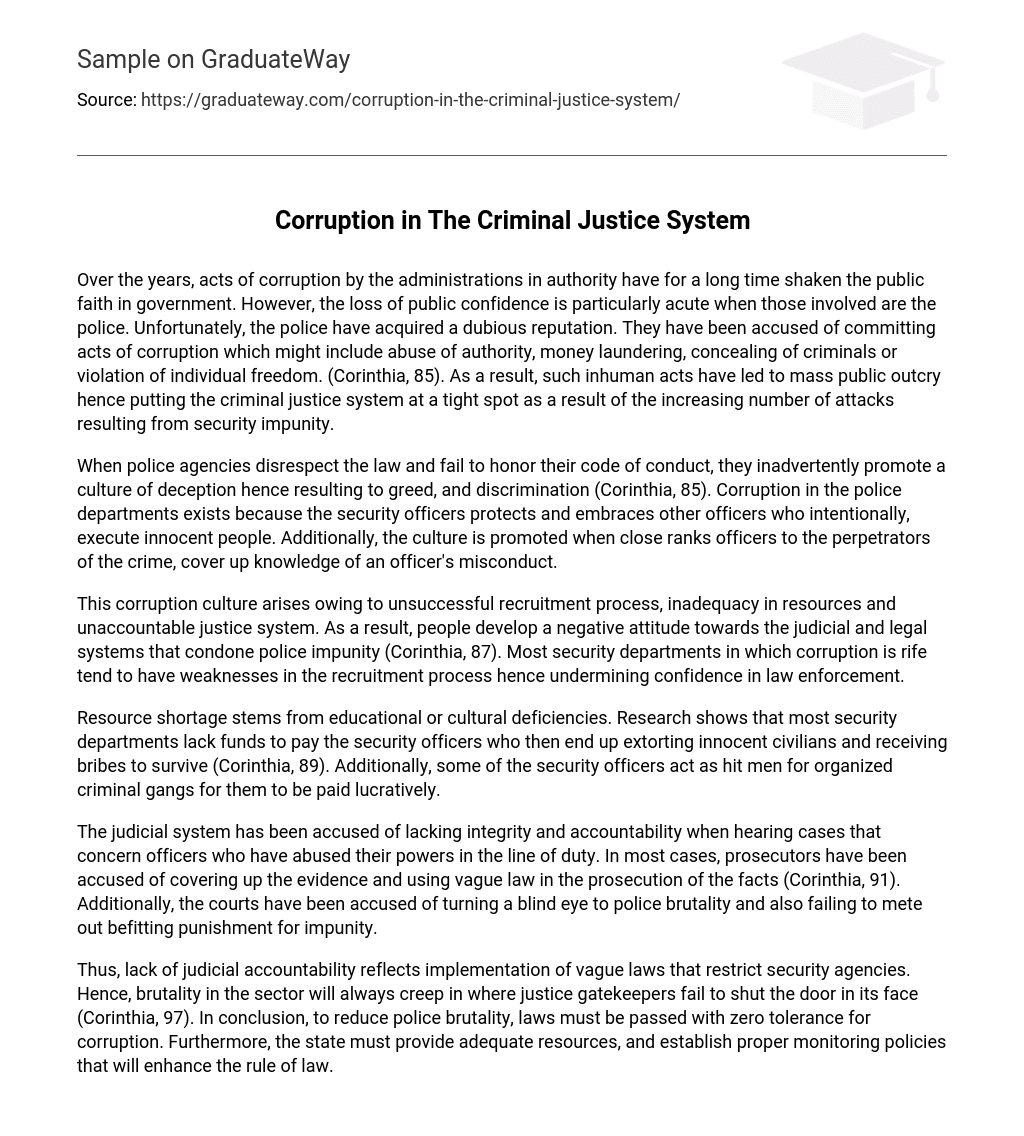Over the years, acts of corruption by the administrations in authority have for a long time shaken the public faith in government. However, the loss of public confidence is particularly acute when those involved are the police. Unfortunately, the police have acquired a dubious reputation. They have been accused of committing acts of corruption which might include abuse of authority, money laundering, concealing of criminals or violation of individual freedom. (Corinthia, 85). As a result, such inhuman acts have led to mass public outcry hence putting the criminal justice system at a tight spot as a result of the increasing number of attacks resulting from security impunity.
When police agencies disrespect the law and fail to honor their code of conduct, they inadvertently promote a culture of deception hence resulting to greed, and discrimination (Corinthia, 85). Corruption in the police departments exists because the security officers protects and embraces other officers who intentionally, execute innocent people. Additionally, the culture is promoted when close ranks officers to the perpetrators of the crime, cover up knowledge of an officer’s misconduct.
This corruption culture arises owing to unsuccessful recruitment process, inadequacy in resources and unaccountable justice system. As a result, people develop a negative attitude towards the judicial and legal systems that condone police impunity (Corinthia, 87). Most security departments in which corruption is rife tend to have weaknesses in the recruitment process hence undermining confidence in law enforcement.
Resource shortage stems from educational or cultural deficiencies. Research shows that most security departments lack funds to pay the security officers who then end up extorting innocent civilians and receiving bribes to survive (Corinthia, 89). Additionally, some of the security officers act as hit men for organized criminal gangs for them to be paid lucratively.
The judicial system has been accused of lacking integrity and accountability when hearing cases that concern officers who have abused their powers in the line of duty. In most cases, prosecutors have been accused of covering up the evidence and using vague law in the prosecution of the facts (Corinthia, 91). Additionally, the courts have been accused of turning a blind eye to police brutality and also failing to mete out befitting punishment for impunity.
Thus, lack of judicial accountability reflects implementation of vague laws that restrict security agencies. Hence, brutality in the sector will always creep in where justice gatekeepers fail to shut the door in its face (Corinthia, 97). In conclusion, to reduce police brutality, laws must be passed with zero tolerance for corruption. Furthermore, the state must provide adequate resources, and establish proper monitoring policies that will enhance the rule of law.





